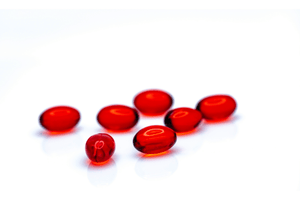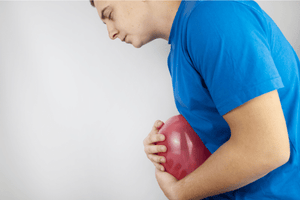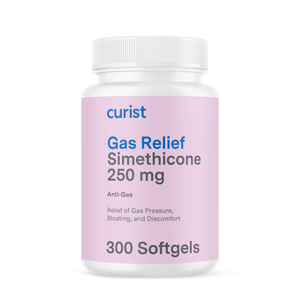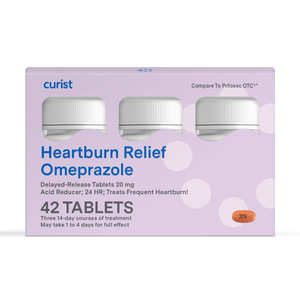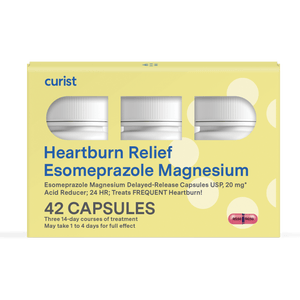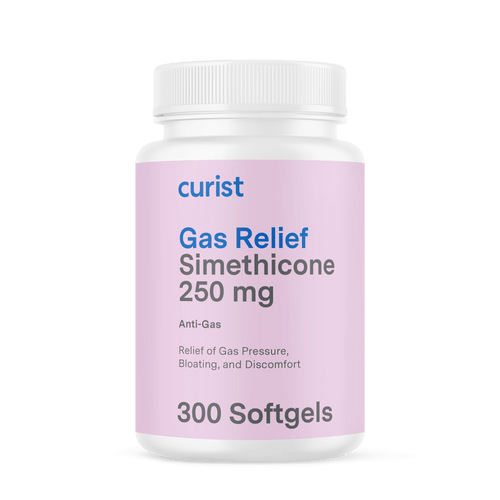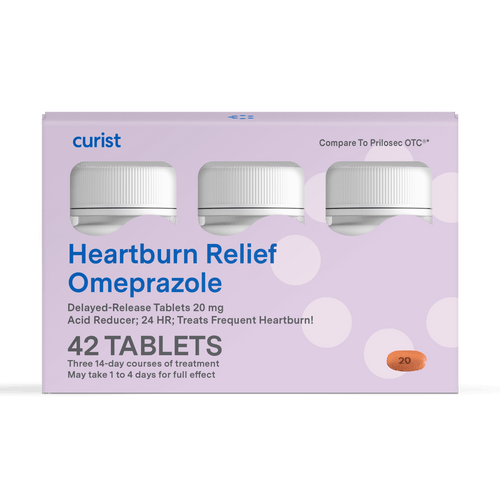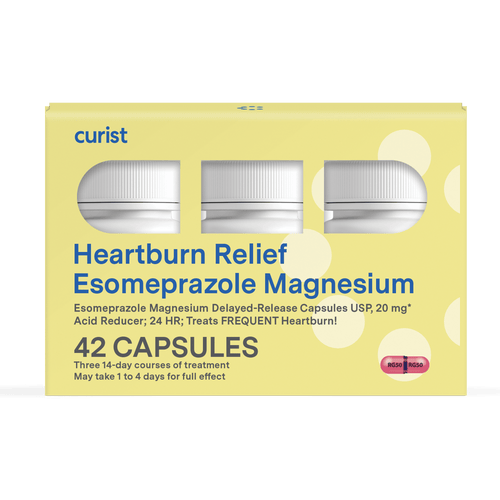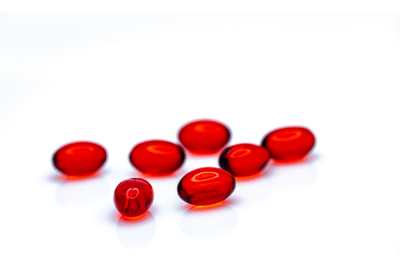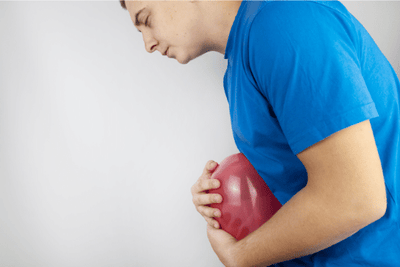Curist delivers over-the-counter medicines to your door at a fraction of the price of traditional brands. We hope everyone stays safe and healthy during this time.
Is Excessive Gas Normal?
Gas is a normal part of your digestive system and is usually a sign that a person’s digestive system is working as it should. However, too much gas can cause you to experience swelling, belching, or passing too much gas (farting). Excessive bloating and passing gas can be caused by different food products that you ingest. How exactly does this happen? Let’s find out!
How Do Different Foods Produce Gas? How Do Different Drinks Produce Gas?
There can be many different ways foods and drinks cause gas. Some foods can provide nutrients to gas-producing bacteria in the lower intestines. Other foods can exacerbate bloating or flatulence (farting) because their body lacks the lactose enzyme to break down dairy products, also known as lactose intolerance. Some carbohydrates can get broken down by bacteria that can result in the production of gas.
What Foods and Beverages Cause Gas?
The foods listed below are known to increase the production of gas. One important thing to note is that although these foods cause you to experience excessive gas, you do not have to avoid these foods entirely. A majority of these foods provide healthy nutrients to your body and should be limited or reduced rather than completely cutting out the foods.
- Beans and lentils
- Onions, peas, peppers, potatoes, raddish
- Fructose found in artichokes, pears, wheat
- Whole grains products
- Asparagus, broccoli, brussel sprouts, leafy greens
- Sugar-free hard candies and gum
- Corn, pasta, potatoes or foods rich in starch
- Processed foods - frozen foods, snacks, cereal
- Dairy products (learn about lactose intolerance)
- Carbonated drinks
- Sorbitol - artificial sweetener
- Chewing gum
This list covers a lot of healthy foods, but it is important to remember these foods do not have to be completely avoided- just reduced if you are feeling uncomfortable from excessive gas. Another important factor is as you age, food sensitivities may change. Therefore, if a new onset of gas is caused by a certain food that you used to eat all the time, it is completely normal.
What Are Some Treatments for Gas from Food?
If your favorite food is the source of excessive gas, there are different remedies for you! First and foremost, it is important to first determine the source of excessive gas. You can do this by beginning a food diary. On your phone in your notes tab, you can take note of what you eat, followed by instances where you feel excessive burping, farting, or feelings of bloatedness. This is an easy way to track what foods could potentially cause those symptoms, and then reduce eating those foods to reduce gassiness.
Sometimes gas can be caused by eating too fast. Indulging food quickly can cause you to swallow gas that can lead to built up gas in your body. Try slowing down and enjoying your meal!
In addition, there are over-the-counter medicines that treat gas and bloating. Simethicone is an effective gas treatment that starts working in minutes for fast relief. Curis Gas Relief Maximum Strength contains simethicone 250 mg.
Talk to Your Healthcare Provider if You’re Worried about Gassiness
If you have tried to track your food intake and have tried different remedies to reduce your bloatedness and gassiness, you may want to reach out to your healthcare provider for further assistance. Your healthcare provider may need to rule out any underlying conditions.

